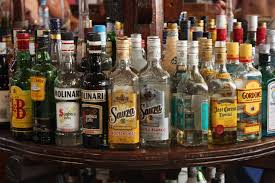My Partner Is Addicted to Drugs and Alcohol: What Can I Do?
An addictive relationship would have to be the most frustrating relationship to be involved in. Nothing breeds more contempt and frustration than a partner who has an addiction. This kind of relationship is just as painful for the person facing the addiction as it is for the people who love them. A relationship that is marred with alcohol or drug abuse is fraught with arguments, confrontations, financial hardship, emotional blackmail and possibly physical abuse. The partner without the addiction will be constantly on the receiving end of the other’s problems and they will live with the hope that one day the addict will kick the habit.
These relationships bring nothing but sadness and despair; one can only expect constant unhappiness. There is bound to be loneliness, intense anger and many confrontations about what the addict is doing. Someone who is addicted to drugs or alcohol will do anything to obtain that next drink or next hit of their chosen drug, and usually at the expense of their partner. Funnily enough the confrontations will often unite the couple, rather than drive them apart. This is called co-dependency.
This happens because the addict will display total helplessness if their comfort zone within the relationship is threatened. An addict will break down at such confrontations pleading for support. They will make empty promises of moving away from the addiction, and promise never to touch drugs or alcohol again. It is this helplessness that pushes the other partner to provide the necessary emotional support. This cycle of support will get worse with every fight and confrontation.
Most of us would assume that the partner without the addiction may leave however sadly that is not the case. They are addicted to the cycle of supporting their partner in their suffering. For some walking out is not an option, they may be dependant on their partner for many reasons; financial security could well be a factor, especially if the non addict is the homemaker in the family. Fear is what holds these relationships together.
Some partners will convince themselves that their addicted partners’ will die if they leave them to their own devices. This is another form of emotional blackmail being played out. Usually the addicted partner has planted that seed. Some people will convince themselves that they alone can help the addict give up their addiction.
Whatever the reason, some partners will stay on in the relationship and believe that everything will be fine one day. The addicts make full use of this scenario by engaging in more emotional blackmail, and subtle arm-twisting.
You could be in danger of being trapped in such as relationship, should you show some of the following traits:
- You will not leave them, even though you know that what is happening is bad for you, and will possibly ruin your career or your personal life.
- You constantly make excuses for your partner, absolving him or her of the blame even though you realise your thinking defies logic
- The thought of leaving causes you to panic and cling to your partner more tightly. You feel confused all the time, when its clear you may well be fighting a losing battle.
- You suffer physical and emotional discomfort when you try to escape the relationship. It could be an evening out with a friend and you may yearn to return home to your partner.
What should you do to save the relationship?
Do nothing; unless your partner is committed to overcoming their addictions. This is such a hard relationship to be in and we all deserve happiness. Why make life harder than it has to be however, if you are choosing to stay then here are some suggestions:
You need to build your strength. Should you choose to take this on, you must not allow your partner to mess with your values and principles. You must remain true to yourself. Do not give in to your partner’s emotional blackmail, and insist that they get help or you will leave. There is a group called Al Anon, it is support group for the families of alcoholics, this will help you. Be ruthless in dealing with the addict. Treat their addiction as a disease and not something personal. Insist on them taking steps to get well and do not feed the addiction by giving into emotional blackmail. If your partner is craving a hit, or a drink, let them deal with it and if they become ill or have a seizure, call an ambulance. Do not mother them, or try to wrap them in cotton wool, all you can do is be there.
You are an equal partner in the relationship. And you should not be manipulated into believing that you are their saviour or rescuer. Your partner is not a victim, they are sick, they have a disease called addiction and there is no cure, except to give up the addiction. Do not treat yourself as a victim either, as you are not. Let the addict know that you have no desire to become a martyr for his cause. Do not accept his or her lies. Addicts will tell lie after lie to get their own way. Any psychologist will tell you that addicts are extremely good at convincing you to believe their lies and excuses. This is how they live in denial of their own addiction and they inevitably force their partners into the game.
Find a support group that understands what you are going through. This is so important, even if your partner refuses to get help, you must! You will realize that are not alone and the group will help you to get out the pattern that your partner has you trapped in. The group will also give you strategies to cope with your partner’s addiction and all the rubbish that goes with it. They will also give you the strength to move away from your partner if you wish to do this. These people have been through the same stuff you are going through.
You might like to consider seeing a therapist or counsellor. Your well-being is at stake here. This may be a shock, given that you may feel that your partner needs professional help and you may feel that you don’t. But believe me, you do. If you are considering staying with your addict partner, then you need all the help you can possibly get. Counselling can be very useful, you will learn how to tackle sticky situations with your partner and deal with the sadness and depression you are bound to feel whilst dealing with this type of relationship.
Give yourself a time limit. Know when to say enough is enough and leave. Do not suffer on indefinitely or you will just become a slave to the addict, and he or she will suck you deeper and deeper into a life of constant unhappiness.

Janelle Coulton (aka Jel) is a professional relationship & fiction writer. She writes essays, articles, critical prose and contributes to blogs and websites. She is passionate about writing and helping people who have troubled relationships. Her work can be provocative, controversial and funny. Most of all her writing contains passion. Jel writes for Hubpages, Bubblews. Triond and Wikinut as Janelle Coulton, she also writes under her pen name Whitney Rose at Helium, Experts Pages and Full Of Knowledge. Jel was a former writer at Suite101, you can link to her Suite profile below.
To read more of Janelle Coulton's articles, Please visit at: JanelleCoulton@Suite101 or you can read other blogs at: Janelle's Blogs
Link back to this article and many others on Bubblews: Relationships and Addictions
All photos have a Creative Commons licence and are linked to the appropriate source.
Copyright © 2012 Janelle Coulton
Information about all drugs and the
effects of each one. Available at Amazon
